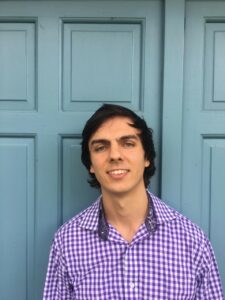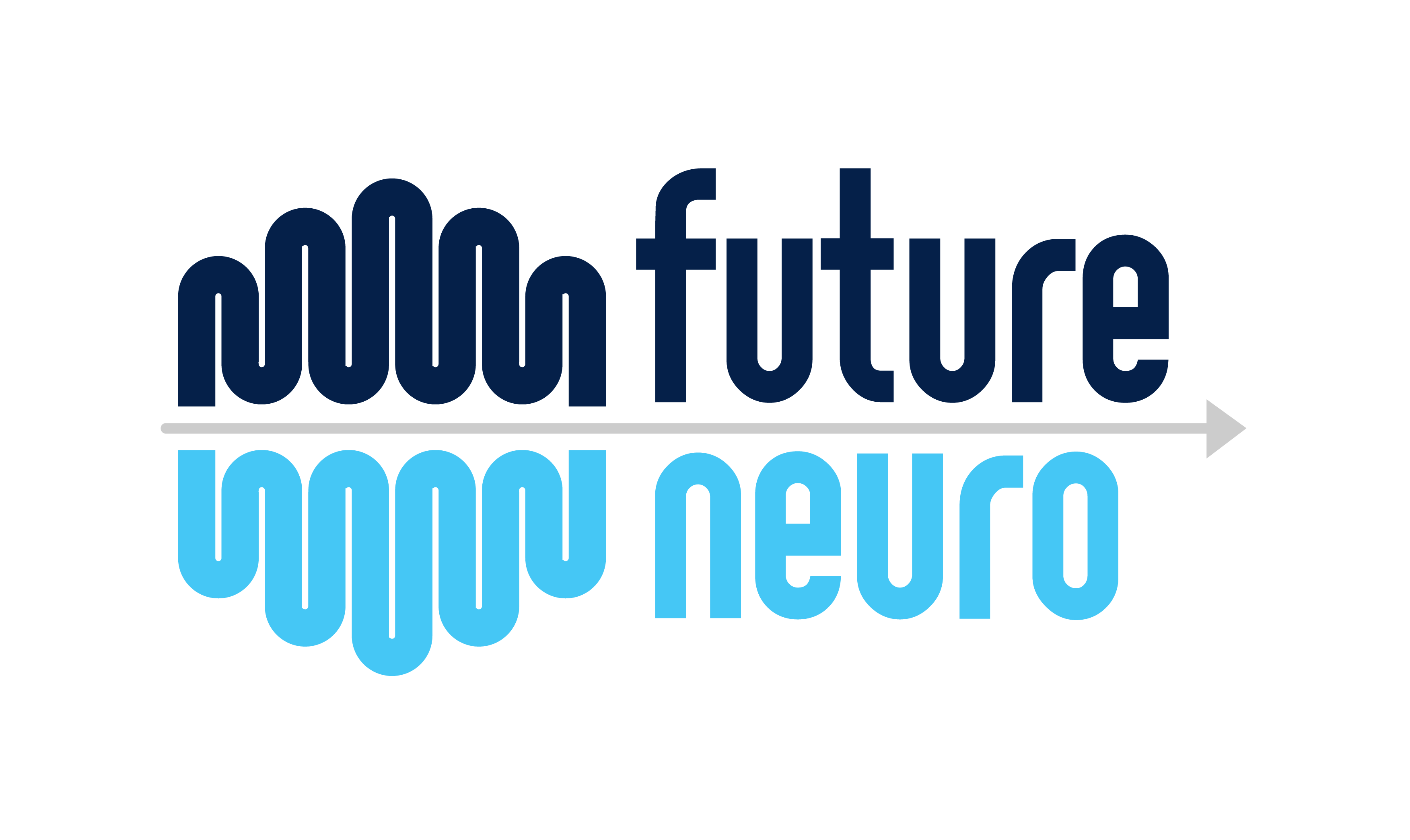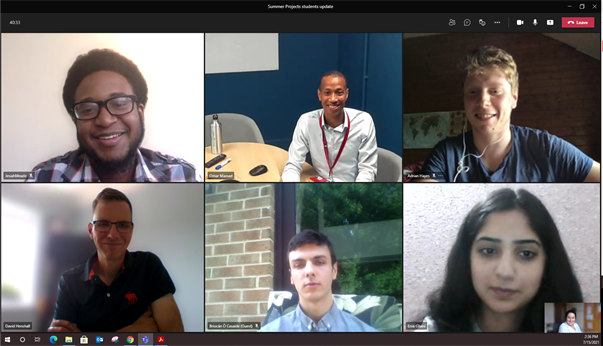At FutureNeuro this summer we had four students, Adrian Hayes and Jesiah Meade both from RCSI and Erva Ghani from UCD and Briocan O’Casaide from TCD, investigating the relationship between seizures and temperature in epilepsy. Some interesting discoveries were made in the preclinical model of temporal lobe epilepsy and the publication of these interesting findings are expected by next year.
Speaking about the summer programme, supervisor of the project Omar Mamad said it was ‘great to have all these different students joining our FutureNeuro Centre (directed by Prof David Henshall) and learn more about epilepsy, especially the impact of climate change on epilepsy. I hope they enjoyed the summer program despite the pandemic year.’
From Tipperary to Trinidad and Tobago, we met with each student about their path to FutureNeuro and plans for their future.

Name and role with FutureNeuro:
Erva Ghani- Intern
Where are you from?
Pakistan
What has brought you to FutureNeuro and how did you get here?
I had heard of FutureNeuro before and have always been interested in epilepsy. I was taught about epilepsy in detail in 3rd year and this really sparked my intertest further, so I contacted the professor who was researching on epilepsy at UCD who then recommended me to contact Prof. Henshall for a summer internship and rest is history.
Tell us about what you are working on?
We are working on a preclinical models of drug resistant temporal lobe epilepsy (TLE) which are injected with kainic acid to induce status epilepticus, this is followed by long term changes such as spontaneous seizures and progressive neuronal damage primarily in the hippocampus. These changes closely resemble the pathology associated with TLE in humans. The models were then injected by an anticonvulsant which initiates epileptogenesis leading to the development of spontaneous recurrent seizures. We analysed whether body temperature change during, in advance of (or after) a seizure.
How did you end up in the field you are in?
When I started science at UCD, I was introduced to Pharmacology through a project in first semester. The professor who introduced me to it was working on growing kidneys in his lab, I didn’t know this was possible and it blew my mind. Everything from the possibility to create new drugs for them to work effectively with minimal side effects to being able to target different points in a disease encouraged me to find more about the subject. I got my hands on a 3rd year pharmacology book and tried to understand what I could at the time, and I knew this was what I wanted to do.
What did you enjoy about being part of FutureNeuro and why?
I really enjoyed the project, it was very interesting and our supervisor was very helpful that it made the project fun despite it being virtual. I had always struggled with using different softwares and I still remember how hard I thought it would be at the start of the summer but I have built skills over the weeks to be able to use most of them confidently. I also really liked the Monday meetings where everyone talked about different projects they were working on, and this opened my eyes to the amount of work and effort which goes into every small step of research.

Name and role with FutureNeuro:
Jesiah Meade, Summer Student Researcher
Where are you from?
I am from Trinidad and Tobago.
What has brought you to FutureNeuro and how did you get here?
I am an incoming 3rd year medical student at RCSI. They strongly encourage us to keep busy during the vacation, so I decided that I wanted to do research as it aligns with my future goal. I then emailed Prof Henshall who offered the opportunity for me to be apart of the project.
Tell us about what you are working on?
We are carrying out a Preclinical Kainic Acid model to determine whether there is a relationship between seizures and changes in temperature before and after the seizure. In addition, we looked at the relationship of seizures and duration. This is being done to determine the effects climate change has on Epilepsy.
What did you enjoy about being part of FutureNeuro and why?
I enjoyed being able to learn something new and to be mentored by great Researchers is also a plus. This allowed me to increase my research skills especially in statistics and data collection which I am grateful for having the opportunity.
What are your hopes for your future career?
My dream is to become a Neurologist as well as to be able to work in research.
Finally, what advice would you give someone like you who wants to enter the field you are in?
I think the major thing is to be disciplined and committed to reaching that goal. Also, plan to do things now that give you “mini wins” whether it is networking, a course, volunteering somewhere or reading.

Name and role with FutureNeuro:
Adrian Hayes, Student researcher
Where are you from?
I am from Tipperary, I grew up on a farm just outside a small town called Borrisokane.
What has brought you to FutureNeuro and how did you get here?
I studied Neuroscience for my undergraduate degree in Trinity College Dublin, graduating in 2019. Following this I worked as a Research Assistant for a year and at this time became aware of the interesting work being carried out in the FutureNeuro Centre as one of my then colleagues Dr Mamad had taken up a position there. I entered the graduate entry medical (GEM) programme in RCSI in 2020.
How did you end up in the field you are in?
I developed an interest in neuroscience while studying biology in Trinity College Dublin. The anatomical, electrical and physiological properties of the brain fascinated me, particularly the complexity of how this translates into behaviour and can go wrong in disease states. While I gained a certain thrill from research and discovery, the challenge and uncertainty of scientific research in delivering real world practical benefit spurred me on to study medicine where I felt I could deliver more immediate and tangible help to others. Ideally, I would like to combine clinical practice with research in the future.
What did you enjoy about being part of FutureNeuro and why?
I enjoy being part of an active research community that is very much bridging the gap between basic scientific research and patient care by developing biomarkers and novel therapeutics for epilepsy and other neurological disorders. For me what makes FutureNeuro stand out is the collegial atmosphere, innovative research projects and genuine collective ambition to improve patient care and outcomes.

Name and role with FutureNeuro:
Briocán Ó Casaide, Internship
Where are you from?
Co. Meath
What has brought you to FutureNeuro and how did you get here?
I became acquainted with Dr. Omar Mamad through the neuroscience department in Trinity College Dublin. He later offered me a place on the internship program with FutureNeuro which I gratefully accepted.
Tell us about what you are working on?
An involvement in paper publication. It included the analysis of preclinical model of epilepsy (seizures) and temperature through use of statistical programs, such as labchart reader, graphpad prism and origin, in a preclinical model of epilepsy. The project also included weekly laboratory presentations and discussion of future objectives regarding the paper, supervised by Dr. Omar Mamad, Research Fellow at the Royal College of Surgeons.
How did you end up in the field you are in?
I studied Immunology in Trinity College Dublin as an undergraduate. I became interested in neuroscience and the autoimmune conditions of neurodegenerative diseases during my undergraduate degree.
What did you enjoy about being part of FutureNeuro and why?
I enjoyed the whole experience. I enjoyed the analysis of preclinical model of epilepsy and was astounded by the work done by FutureNeuro and implications of the research at hand.


